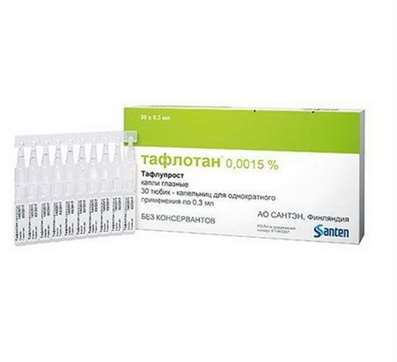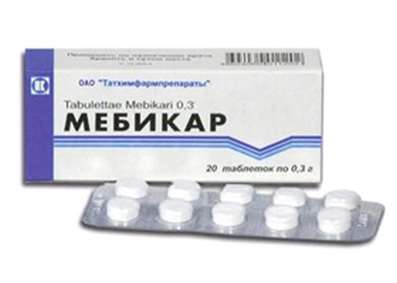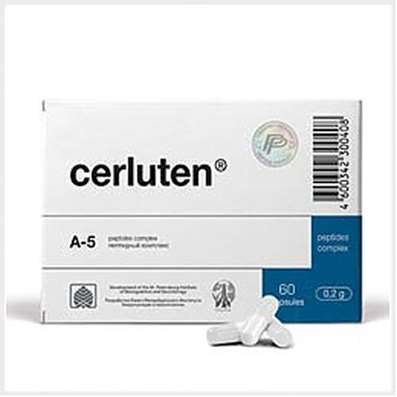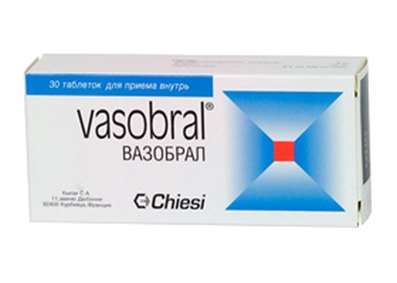Instruction for use: Prenacid
I want this, give me price
Active substance Desonide
ATX Code S01BA11 Desonide
Pharmacological group
Glucocorticosteroids
Ophthalmic products
Nosological classification (ICD-10)
H01.0 Blepharitis
Blepharitis, Inflammation of the eyelids, Inflammatory diseases of the eyelids, Demodectic blepharitis, Superficial bacterial infection of the eyes, Superficial infection of the eye, Scaly blepharitis
H10 Conjunctivitis
Conjunctivitis infectious-inflammatory,Bacterial conjunctivitis, red-eye syndrome, Superficial infection of the eye, Chronic non-infectious conjunctivitis
H15.0 Sclerite
Acute scleritis, Chronic scleritis, Diffuse scleritis, Sclerite
H16.3 Interstitial (stromal) and deep keratitis
Parenchymal keratitis without damage to the corneal epithelium, Interstitial keratitis
H20 Iridocyclitis
recurrent iritis, sympathetic iridocyclitis, Sluggish posterior uveitis, Sluggish posterior uveitis, Posterior uveitis, the posterior segment of the eye Iridocyclitis, Iridocyclitis and other uveitis, Irit, Keratoiridotsiklit, Acute iritis, uveitis, cycle of Acute iridocyclitis, Acute non-infectious uveitis
H20.9 Iridocyclitis Unspecified
Iridocyclitis, Diffuse posterior uveitis, keratouveit, Uveitis middle or rear portion of the eye, Sight-threatening uveitis middle or rear portion of the eye,keratouveitis, Anterior uveitis, Flaccid anterior uveitis, Endogenous uveitis, Inflammation of the ciliary body, Uveitis anterior portion of the eyeball, sympathetic uveitis
H30 Chorioretinal inflammation
Retinitis, Chorioretinitis, Central and peripheral chorioretinal dystrophy
H30.9 chorioretinal inflammation, unspecified
Choroiditis, myopic chorioretinitis, Violation of choroidal circulation, Central retinitis
H46 Optic neuritis
Leber Retinitis, Inflammatory optic neuritis of the optic nerve, Strona syndrome, Inflammation of the optic nerve, Papillitis
T90.4 Consequences of trauma to the eye, near-orbital area
Z100 * CLASS XXII Surgical practice
Abdominal surgery, adenomectomy, Amputation, Coronary angioplasty, Angioplasty of the carotid arteries, Antiseptic skin treatment for wounds, Antiseptic Hand, Appendectomy, atherectomy, Balloon coronary angioplasty, Vaginal hysterectomy, The coronary bypass, Interventions in the vagina and cervix, Interventions on the bladder, Intervention in the mouth, Restoration and reconstructive surgery, Hand hygiene of medical personnel, Gynecologic surgery, Gynecological intervention, Gynecological surgery, Hypovolemic shock during operations, Disinfection of purulent wounds, Disinfection of wounds edges, Diagnostic intervention, Diagnostic procedures, Cervical Diathermocoagulation, Long-surgery, Replacing the fistula catheters, Infection in orthopedic surgery, Artificial heart valve, cystectomy, Short-term outpatient surgery, Short-term operation, Short surgical procedures, Krikotireotomiya, Blood loss during surgery, Bleeding during surgery and in the postoperative period, Kuldotsentez, laser photocoagulation, laser coagulation, retinal laser coagulation, Laparoscopy, Laparoscopy in Gynecology, CSF fistula, Small gynecological operations, Small surgical procedures, Mastectomy and subsequent plastic, mediastinotomy, Microsurgical operations on the ear, Mukogingivalnye operation, suturing, Minor surgery, neurosurgical operation, Immobilization of the eyeball in ophthalmic surgery, testectomy, pancreatectomy, Perikardektomiya, The period of rehabilitation after surgery, The period of, convalescence after surgery, Percutaneous transluminal coronary angioplasty, Pleural thoracentesis, Pneumonia postoperative and posttraumatic, Preparation for surgical procedures, Preparation for surgery, Preparation of the surgeon's hands before surgery, Preparation of the colon for surgical procedures, Postoperative aspiration pneumonia in neurosurgical and thoracic surgery, Postoperative nausea, Postoperative bleeding, postoperative granuloma, postoperative shock, The early postoperative period, myocardial revascularization, Radiectomy, gastric Resection, bowel resection, uterine Resection, liver Resection, enterectomy, Resection of part of the stomach, Reocclusion of the operated vessel, Bonding tissues during surgical procedures, Removal of sutures, Condition after eye surgery, Condition after surgery, Condition after surgery in the nasal cavity, Condition after gastrectomy, Status after resection of the small intestine, Condition after tonsillectomy, Condition after removal of the duodenum, Condition after phlebectomy, Vascular surgery, Splenectomy, Sterilization of surgical instruments, Sterilization of surgical instruments, sternotomy, Dental surgery, Dental intervention in periodontal tissues, strumectomy, Tonsillectomy, Thoracic surgery, total gastrectomy, Transdermal intravascular coronary angioplasty, Transurethral resection, Turbinektomiya, Removal of a tooth, cataract surgery, Removal of cysts, tonsillectomy, Removal of fibroids, Removing the mobile primary teeth, Removing polyps, Removing broken tooth, Removal of the uterus body, Removal of sutures, Urethrotomy, Fistula likvoroprovodyaschih ways, Frontoetmoidogaymorotomiya, Surgical infection, Surgical treatment of chronic limb ulcersm, Surgery, The surgery in the anal area, The surgery on the
colon, Surgical practice, The surgical procedure, Surgical interventions, Surgery on the gastrointestinal tract, Surgical procedures on the urinary tract, Surgical procedures on the urinary system, Surgical intervention of the genitourinary system, Surgical procedures on the heart, Surgical manipulation, surgery, Surgery on the veins, Surgical intervention, Vascular surgery, Surgical treatment of thrombosis, cholecystectomy, Partial gastric resection, transabdominal hysterectomy, Percutaneous transluminal coronary angioplasty, Percutaneous transluminal angioplasty, Coronary artery bypass, tooth Extirpation, Extirpation of milk teeth, pulpectomy, pulsative cardiopulmonary bypass, tooth Extraction, teeth Extraction, cataract extraction, Electrocoagulation, endourological intervention, episiotomy, Etmoidotomiya, Complications after tooth extraction
Composition and form of release
Eye drops 1 ml
Dezonide 21 sodium phosphate 0.0025 g
Auxiliary substances: benzalkonium chloride (preservative); Monobasic potassium phosphate; Dibasic sodium phosphate; sodium chloride; Polysorbate 80; purified water
In bottles of dark glass of 10 ml complete with a dropper; In a pack of cardboard 1 bottle.
Ointment eye 1 g
Dezonide 21 sodium phosphate 0.0025 g
Auxiliary substances: vaseline oil; Lanolin anhydrous; petrolatum
In tubes of aluminum for 10 g; In a pack of cardboard 1 tuba.
Description of dosage form
Eye drops: colorless clear solution.
Eye ointment: homogeneous ointment light yellow color.
pharmachologic effect
Pharmacological action - anti-inflammatory, vasoconstrictive.
Pharmacodynamics
GCS (glucocorticosteroids) for topical application in ophthalmology. Has anti-inflammatory effect, reduces vascular permeability, chemotaxis, promotes stabilization of lysosomes, has vasoconstrictive effect in inflammation.
Pharmacokinetics
With topical application, systemic absorption is low.
Indications
Acute and chronic allergic and inflammatory processes in ophthalmology:
Inflammation of the anterior segment of the eye (blepharitis, conjunctivitis, scleritis, deep keratitis without epithelial involvement, irit, iridocyclitis);
Inflammation of the posterior segment of the eye (choroiditis, chorioretinitis, optic neuritis);
Prevention and treatment of inflammatory phenomena in the postoperative and post-traumatic period.
Contraindications
Hypersensitivity to any of the components of the drug;
Keratitis caused by Herpes zoster (dendritic keratitis), chicken pox and other viral diseases of the eyelids, conjunctiva and cornea;
Mycobacterial infections of the eyes;
Fungal diseases of the eyes;
Acute purulent eye diseases (including barley);
Corneal epitheliopathy;
Increased intraocular pressure, glaucoma.
pregnancy and lactation
To date, clinical trials regarding the use of the drug during pregnancy, lactation, and also in children are not available. However, the drug can be used if the intended benefit to the mother exceeds the possible risk to the fetus.
Side effects
Allergic reactions, tingling, burning in the place of application. With prolonged use, it is possible to increase intraocular pressure with the development of the glaucoma symptom complex with optic nerve atrophy and narrowing of the visual fields (therefore, if more than 10 days of preparations containing glucocorticosteroids are used, intraocular pressure should be measured regularly), perforation of the cornea, attachment of a fungal infection.
With continued use for more than 3 months, cataracts can develop.
Interaction
Pharmacological interaction with other drugs is not known.
Dosing and Administration
Eye drops: instill 1-2 drops 3-4 times a day.
Ointment ophthalmic: lay in the lower conjunctival arches 3-4 times a day. When administering eye drops, it is sufficient to apply eye ointment once a night.
Treatment time should not exceed 4 weeks.
Overdose
There may be local side effects (see the "Side effects" box). If allergic reactions occur, treatment should be stopped immediately. No pronounced general phenomena with local therapy were observed.
special instructions
The drug is not recommended for use with contact lenses. Before using the drug, contact lenses should be removed and put on again not earlier than 20-30 minutes.
As a result of prolonged use of drops, intraocular pressure may increase. If the drug is used for 2 weeks or more, the intraocular pressure should be measured regularly. The therapy of SCS can mask the current bacterial or fungal infection.
In view of possible lacrimation after instillation of the drug, it is not recommended to apply it directly before driving vehicles or servicing mechanical equipment.
storage conditions
At a temperature not exceeding 25 ° C.
Keep out of the reach of children.
Shelf life
2 years. After opening the package - 30 days.
Do not use after the expiry date printed on the package.

 Cart
Cart





